The reason Sabah agreed to only 5% oil royalty instead of 50%

On 21st June 1976, the opposition Berjaya party joined Barisan Nasional and the Supplementary Agreement was signed. All opposition to Sabah getting only 5% oil royalty died in that 6th June plane crash. And most Sabah people until today believe the plane crash was an assassination due to the new Sabah government opposing the 5% oil royalty and demanding 50% instead.
NO HOLDS BARRED
Raja Petra Kamarudin
Article 4(1) of the Federal Constitution of Malaysia says, “This Constitution is the supreme law of the Federation and any law passed after Merdeka Day which is inconsistent with this Constitution shall, to the extent of the inconsistency, be void.”
Basically, this means Parliament cannot pass any new laws that violate the Constitution. And just because it is an Act of Parliament that does not mean it is legal.
When the Federation of Malaya or Persekutuan Tanah Melayu was formed in 1948, it was agreed that the two states of the Straits Settlements (minus the third one, Singapore), the four States of the Federated Malay States, and the five states of the Unfederated Malay States (total 11 states), would come together to form the Federation or Persekutuan.
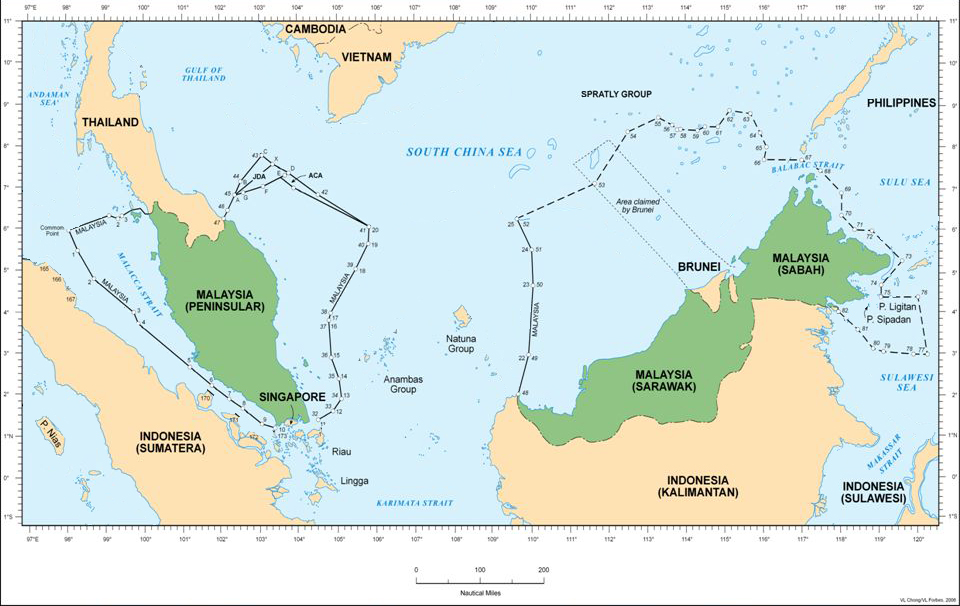
Malaysia’s economic zone
Under the terms of the Federation, defence, national security and foreign policy would be a federal matter. Religion, Malay customs and traditions, land, and natural resources, would come under the respective states. Natural resources would include minerals (tin, iron, gold, silver, etc.), timber, sand, water, and anything within the state’s territorial waters or economic zone (fishing or whatever). And economic zone here would mean 200 miles or roughly 370 kilometres from the coast.
Around the time that Tun Razak Hussein became Malaysia’s Second Prime Minister in 1970, oil and gas were discovered off the coast of Terengganu and within 200 miles of Terengganu’s coast. (Oil had already been discovered in Sarawak 60 years earlier in 1910).
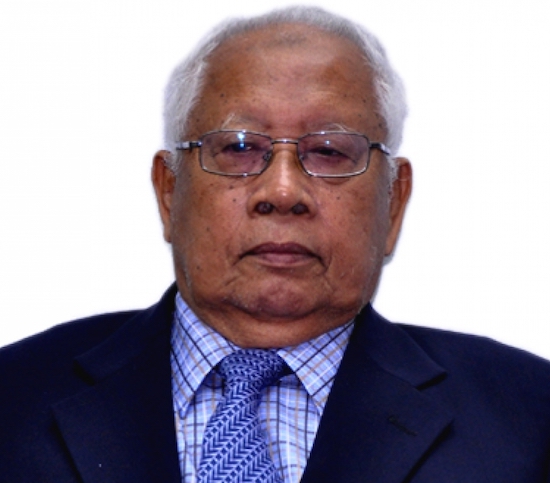
Salleh Abas drafted the Petroleum Development Act and the 1974 Agreement for all the states to sign
But there was a problem. The oil and gas belonged to Terengganu, not to the federal government. This was what was agreed when the Federation was formed in 1948. Oil and gas are natural resources so they belonged to the states, 100%, just like tin, iron, silver, gold, timber, sand, water, and so on.
So, they kept this discovery a secret (even though rumours that Terengganu had discovered oil were already flying around since 1972 and that Exon was secretly pumping it out and transferring it to ships directly from the oil rigs).
In fact, it was Lim Kit Siang who had revealed this secret based on classified documents that he claims had been mysteriously dropped on the doorstep of his house in Melaka by an unknown persons or persons.
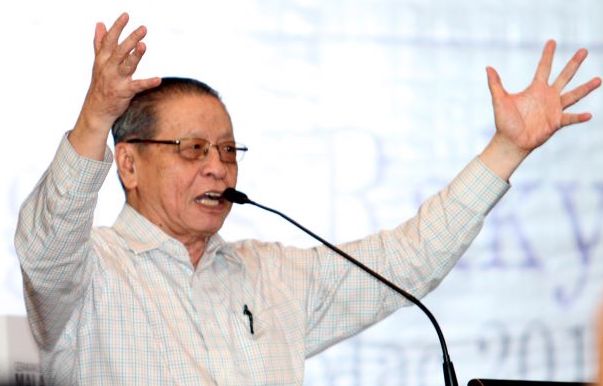
Kit Siang revealed that oil was being secretly pumped off the coast of Terengganu and was being transferred from the oil rigs directly to the ships
In the meantime, they asked the Chief Justice (earlier known as the Lord President), Tun Salleh Abas, to draft the Petroleum Development Act and the Agreement for all the states to sign, handing over the rights for the oil and gas to the federal government.
In 1974, Parliament passed the Petroleum Development Act that made it compulsory for all the states in Malaysia to hand over all rights of their oil and gas to the federal government and that a national corporation called Petronas would take over all rights for oil and gas (and that Petronas answered only to the Prime Minister and not to Parliament).
In short, oil and gas, which by law belonged to the states, were nationalised through an Act of Parliament.
All the states also had to sign Agreements that gave them back 5% of the gross revenue of the oil and gas.
In 1976, all the states were asked to sign Supplementary Agreements to the 1974 Agreements to make it clear that the 5% of gross revenue that the states were being given is to be called ROYALTY. Before this it was just called ‘cash payment’ but only in 1976 was it defined as ‘royalty payment’.
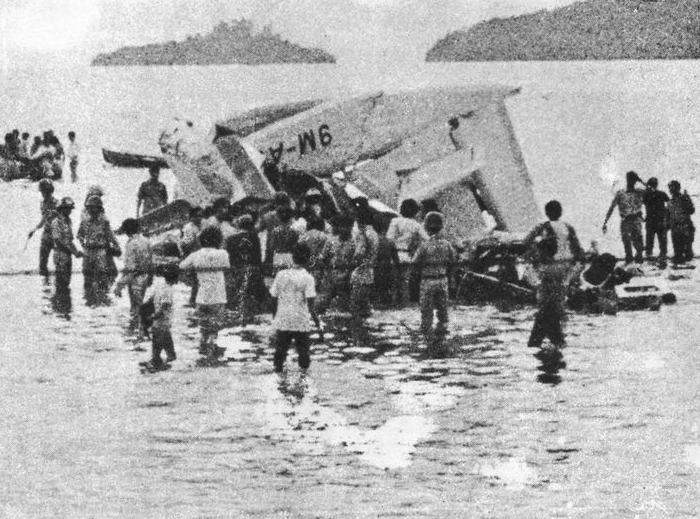
This crash is still a mystery until today and most Sabahans believe it was an assassination and related to the 5% oil royalty
Sabah, which had just changed governments (from Barisan Nasional to Berjaya), refused to agree to a mere 5% royalty. Why should they agree to just 5% when the oil and gas belongs to Sabah 100%? On 6th June 1976, a mysterious and unexplained plane crash killed the top leaders of the Sabah state government. The 11 killed were:
Tun Fuad Stephens, Chief Minister of Sabah
Datuk Peter Mojuntin, Sabah Minister of Local Government and Housing
Datuk Salleh Sulong, Sabah Finance Minister
Chong Thien Vun, Sabah Works and Communication Minister
Datuk Darius Binion, Assistant Minister to Deputy Chief Minister
Datuk Wahid Peter Andu, secretary to Sabah Finance Minister
Dr Syed Hussin Wafa, Director of State Economic Planning Unit
Datuk Ishak Atan, Private Secretary to Malaysian Federal Finance Minister Tengku Razaleigh Hamzah
Johari Stephens (Tun Fuad’s eldest son)
Captain Ghandi Nathan (the pilot)
Corporal Said Mohammad (bodyguard to Tun Fuad Stephens)
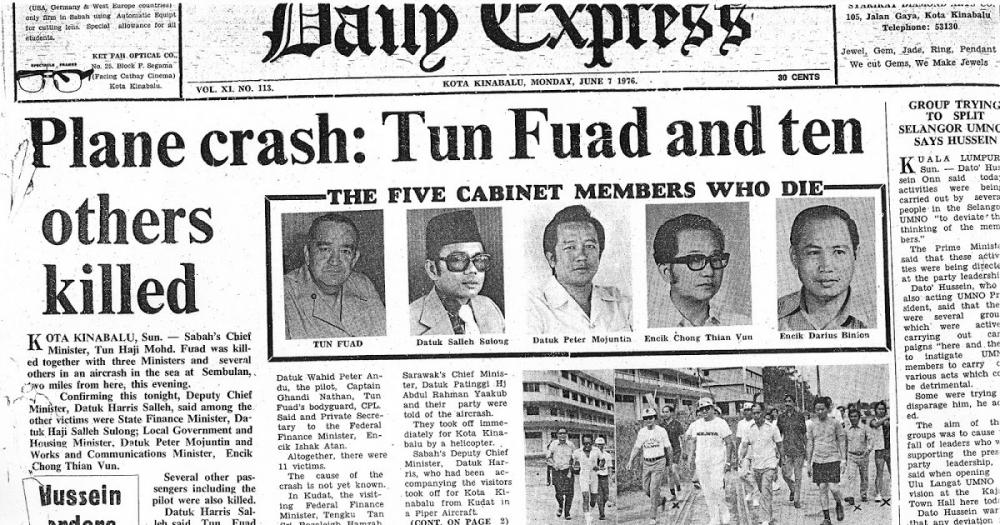
On 21st June 1976, the opposition Berjaya party joined Barisan Nasional and the Supplementary Agreement was signed. All opposition to Sabah getting only 5% oil royalty died in that 6th June plane crash. And most Sabah people until today believe the plane crash was an assassination due to the new Sabah government opposing the 5% oil royalty and demanding 50% instead.
To cut a long story short, the federal government rampas what belongs to the states. However, now that Barisan Nasional has been ousted and the ‘New’ Malaysia is under the Pakatan Harapan government, the injustice since 1974 can be corrected and Sabah, Sarawak, Terengganu and Kelantan can be given at least 20% oil royalty if not 50% as they wanted. After all, Tun Dr Mahathir Mohamad did say he wants to correct his mistakes of the past and one such mistake is not addressing the matter of the oil royalty when he was Prime Minister for 22 years.
READ MORE HERE: No….Kuli, You Are Not!

